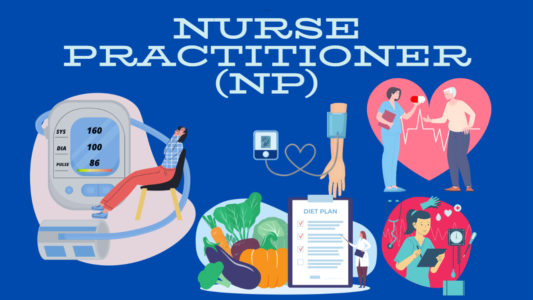HOW TO REST AND AVOID DISTRACTIONS?
R= REST. How to Rest? HOW TO REST AND AVOID DISTRACTIONS? No matter how busy your schedule, everyone needs time to rest. The trouble is, sometimes you wake up from a good night’s sleep feeling just as tired as before! If that’s the case, it may be because you are not getting the type of rest you need. Both your body and mind need a variety of different types of rest to relax, unwind, and recharge. From 5-minute meditation breaks to mindfulness exercises to relaxing escapes to the wilderness (or even just your backyard), you need rest in all forms to really relax. Whether you’re looking to relax your body, mind, or soul, this article is here to help provide tips on how to make rest a meaningful part of your schedule.
Take breaks to relax as you work.
No matter how much work you have to do, remember that you’re only human.
- A break can bring you back to yourself for a moment.
- If you find your mind stuck on a particular homework problem or you just can’t seem to focus on a project at work, take 5 minutes to step away and quiet your mind.
- Giving your mind a break helps you feel fresh and rejuvenated when you return to the task at hand.
- Try going outside for a few minutes of fresh air or take 10 minutes to walk around the block. If you can’t go outside, step away from your desk and look at the view of the city through your window!
Practice daily meditation.
Meditating is a great way to rest your mind and body.
- Though there are a variety of meditation practices you can try, mindful meditation is one of the most common.
- A primary focus of mindful meditation is living in the present moment.
- You do so by focusing on your breathing and letting your thoughts pass without attachment or worries.
- These practices help you rest, quiet your mind, ad relax your body.
- To try meditating, find a calm space to sit alone.
- Next, close your eyes and focus on your breathing.
- If you run into distracting thoughts, acknowledge them but let them pass.
- If you are new to meditating, try it out for shorter spans of time.
- Even 5 minutes of meditation can provide benefits!
Focus on your senses.
Engaging with your senses can ground your thoughts and rest your mind.
- If you find your mind racing, focus instead on senses like sight, smell, and touch as a helpful distraction.
- Experiment with engaging different senses to see which ones are most useful in quieting your thoughts.
- For example, clear your thoughts by imagining a peaceful scene, or look out the window to the trees blowing in the wind.
- You may also try smelling the flowers outside your door or lighting a candle with a nice aroma.
- Engage with touch through petting your dog or cat if you have one or wrapping up in a fuzzy blanket.
Try aromatherapy for its calming benefits.
Aromatherapy uses essential oils to bring you peace, calm, and clarity.
- The process works through breathing in essential oils using a diffuser or humidifier.
- Smelling these aromas prompts your brain to produce hormones like serotonin that can improve your mood.
- Due to its calming benefits, aromatherapy can be used to reduce stress levels and help you relax.
- Commonly used essential oils include lemon, lavender, chamomile, and cedar wood.
- Due to the potent amount of plant material in essential oils, it’s important to use them in moderation and with caution.
- To be safe, avoid direct contact with essential oils on your skin and cease using them if you develop an allergic reaction.
- If you’re unsure of how to properly use essential oils, consider talking to a trained herbalist or doctor before trying out this method.
Take deep breaths.
This is a simple and effective means to distress and unwind.
- Through engaging with your breaths, you can help your body calm down quickly, while also distracting your mind.
- The best part is that this method can be practiced anywhere, whether you’re stressed during a particularly hectic work day or winding down for bed.
- With one hand on your chest and the other on your belly, take a deep breath through your nose.
- Once your belly is filled with air, exhale.
- Continue breathing in and out and feel as the hand on your belly rises and falls with your breaths.
- The hand on your chest should remain steady.
- Continue the practice until you begin to feel its calming benefits.
Practice yoga.
Yoga is a great means to rest your mind and body simultaneously.
- Though yoga is a great workout, it also provides many benefits to help you rest.
- Yoga encourages practicing mindfulness, meaning remaining in tune with your mind and body in the present moment.
- If there is a lot on your mind, this can be a great way to distress and give your mind some peace.
- Yoga also engages your body and breaths, which can be a great means to relax your body.
- Specific yoga poses can be especially helpful when looking to rest your body and mind.
- Child’s pose (Balasana) is a relaxing pose that is also a great option for beginners.
- Corpse pose (Savasana) is another simple yet highly beneficial choice.
- For helpful instruction, consider enrolling in a yoga class, working with a private instructor, or watching online yoga tutorials on websites like YouTube.
Keep a journal to quiet your mind.
- Writing down your thoughts is a great way to rest your mind.
- If you find yourself stressed or particularly anxious about anything, a journal functions as a safe space to express your feelings privately.
- Taking this time to decompress helps put your mind at ease, and quiets negative or stressful emotions so they may become more manageable.
- Journal consistently to experience the greatest benefits.
- Pick a certain time to journal each day.
- Consider journaling each morning to start the day with a clear head or right before bed to rest your mind and prepare for a good night’s sleep.
- Feel free to be as creative as you would like when journaling.
- If you don’t feel like writing down your thoughts sometimes, try drawing pictures or making playlists to express your feelings.
Listen to calming music.
Ambient, comforting music can relax your mind if you need to decompress.
- Studies show that music releases hormones serotonin and oxytocin, which can improve your overall mood and even help you fall asleep at night.
- Try making a playlist of music that brings you peace or look for playlists online.
- You can also consider listening to ambient sounds, such as ocean waves, falling rain, and other sounds of nature to decompress and rest your mind.
- You may find yourself comparing your lifestyle, fitness routine, or looks to the people you follow.
- Or maybe you frequently get sucked into scrolling sessions that seem to never end.
- Regardless, these activities can leave your mind feeling drained and exhausted!
- To give your mind some rest, consider taking a break or being more mindful of how often you use social media.
- Consider scheduling a set time to check social media if you don’t want to take a break altogether.
- For example, pick a time each day to check social media sites and catch up with your friends.
- Limit that time to 5 to 10 minutes!
Going outside can help you relax and live presently.
- The outdoors offer a wealth of resources when it comes to relaxing your mind and body, and you don’t need to retreat to the wilderness to experience its many benefits.
- If you’re stressed during work, take a five-minute break to go outside and breathe in the fresh air.
- Rather than focusing on what’s bothering you, take a moment to look at the trees swaying in the breeze and listen to the sounds of birds chirping and other wildlife.
- You may be too busy to go out during your workday.
- If that’s the case, even adding a plant to your desk can offer an opportunity to appreciate nature.
- Water your plant and admire it in moments when you need some calm.
- When you’ve got more time on the weekend, walk to a nearby park, consider finding a hiking trail in your area, or take a day trip to a natural landmark.
Develop a relaxing bedtime routine.
Establishing a healthy bedtime routine can help you get to sleep faster.
- Try going to bed at the same time each night, and practice relaxing activities like drinking non-caffeinated tea, listening to soothing music, and dimming the lights in your room.
- For the best results, avoid snacking or drinking caffeinated beverages before bed.
- These can make you feel more alert as you drift to sleep.
- You should also avoid using electronics right before bed.
- Phones, computers, and other electronics all emit blue light from their screens, which decreases the production of the sleep-inducing hormone melatonin.
- Consider leaving your laptop and phone in the living room to charge overnight and ceasing your use of electronics a few hours before bed each night.
- If you must use electronics close to bed to study or work, switch to night mode so that the light from your screen is not as harsh.
How to Avoid Distractions?
- In today’s fast paced, technology-reliant world, it can be tougher than ever to focus on taking care of business without getting distracted.
- Many of the thoughts, behaviors and devices that play an important role in daily life can become hindrances when trying to focus.
- In order to stay on task and get things done, it’s essential to create an environment for yourself in which you can work without having your attention pulled in different directions.
- This includes measures like turning off your phones and other electronics, scheduling specific times to work and meeting a quota of work and other tasks that you set for yourself.
Creating a Distraction-Free Environment
Shut off your phone and other electronics.
- Before you dive into working, cleaning, writing or whatever else you need to do, turn off or silence your cell phone and anything else that might prove to be a distraction.
- This includes the TV, video games, etc. Technology is arguably the biggest distraction in modern society, and being surrounded by beeping, buzzing, flashing devices can really hold you back.
- Unless you use your computer for work, shut it down or set it to hibernate.
- Disable sound alerts for texts, emails and tweets to keep yourself from looking at your phone every time there’s activity.
- If you have an especially hard time keeping yourself on task, put away potential distractions somewhere that it would be a hassle to get them back out.
Put your music on pause.
- When you really need to buckle down, work in silence and give your thoughts room to stretch.
- Your mind naturally fixates on melodies, rhythms and lyrics.
- Music can uplift your spirits and make the time pass faster, but by subconsciously following along with a song playing in the background, you’ll be limiting your ability to concentrate whether you realize it or not.
- Save the tunes for after you’ve finished a particular project, or for times when you’re performing light, mindless tasks.
Find out where you work best.
- If you work from home or are involved in creative endeavors, pick a place where you can work comfortably for long periods of time.
- This could be a small corner desk, a well-lit sunroom or your favorite coffee shop.
- The point is to surround yourself with an atmosphere that makes completing tasks easier.
- Be careful of surroundings that can dull your focus in other ways.
- People tend to associate spaces with their common uses, so trying to work in a quiet bedroom may just make you sleepy.
Make sure you won’t be interrupted.
- As best you can, try to insulate yourself from being distracted by others when you have big projects that demand your attention.
- Situate yourself someplace where people are unlikely to pass by and pull you out of your zone.
- If you work in an office, for instance, shutting the door can relay the message that you’d prefer not to be bothered.
- This may not always be possible if you share a space with coworkers, customers or children, but you should at least be able to single out which interactions are necessary and which aren’t.
- Organizing your duties in their most efficient logical order can also keep you from having to interrupt your own work later on.
- Putting on a pair of headphones, even if they’re not playing anything, will make you appear busy and discourage people from trying to start casual conversations.
Ignoring and Overcoming Distractions
Be aware of when you’re getting distracted.
- The second you notice yourself reaching for your phone to check a text message or opening a webpage unrelated to work, stop and cut the distraction off at the pass.
- In order to combat the most common distractions, you must be able to recognize when they’re stealing your attention away.
- Practice staying mindful of resisting distractions by repeating a phrase like “be here now” or “this is not what I need to be doing” when you catch your attention drifting.
- Being vigilant of your mind state can help snap you back to reality.
- Many distractions simply have to be ignored.
- The brain is well-equipped to block out smaller, less intrusive distractions, but with a little practice you can learn to build up your focus and attention like a muscle.
- Most people lose so much time to extraneous activities because they fail to notice when they’re getting distracted, and only become aware of their mistake once the damage has been done.
Resist the urge to procrastinate.
- Be disciplined about making yourself start working.
- Procrastination is a major distraction because it allows you to convince yourself that you’ll be better off performing a task when you feel more prepared.
- Once you realize that you’ll never get anything done unless you do it now, you won’t feel so tempted to put things off.
- Procrastination is a childish mentality.
- It can cause you to avoid responsibility in favor of feeling good right now.
- Research has shown that people rarely meet with more success when they put things off until later as opposed to doing them right away.
Focus with intention.
- Sometimes you have to remind yourself to actively focus.
- Many people never truly learn how to stay focused and find it difficult to keep their minds from wandering when there’s work to be done.
- Try to shut off your own mental distractions so that you can zero in on checking items off your to-do list.
- It’s not enough to simply know that you need to focus; you have to apply yourself to the action you’re performing in the moment.
- It can help to remember that the best way to get everything done is to put all your effort toward one thing at a time.
- Start by seeing a specific task or project through to completion, then move onto another, then another, until you’ve met your goal for the day.
Get away from the source of your distractions.
- Physically remove yourself from a certain set of distractions that’s leaching your mental power.
- Pack the materials you need for work or a creative project and head down to the library or a quiet café where you can peacefully resume your labors.
- By isolating yourself, you’ll be able to literally escape the distractions that you just can’t ignore.
- If you’re powerless before a certain distraction, sometimes you just have to cut and run.
- Even if you’re unable to literally leave the worst of your distractions behind, there are still things you can do to rid them from your mind.
- Leave your phone at home, turn off your Wi-Fi and close every tab you have open that isn’t helping you with your current task.
- An ideal working environment is one where there are as few distractions present as possible.
- This can mean persistent annoyances like cell phones, computers and social media, but it can also include anything that reminds you of what you’d rather be doing.
Working More Efficiently
Set aside specific times to work.
- Find out what time of day you do your best work and structure your to-do list around those hours.
- If you’re a morning person, wake up and get busy before you stall out and lose motivation.
- Night owls can divide their chores up between regular working hours and free time after everyone else has gone to bed.
- Most people are realistically only able to stay focused for a few hours a day, so be sure that you’re making the best use of that time.
- Develop a habit of working at the same time every day, and make yourself stick to it.
- If you keep odd or irregular hours, let others know when you’re working to keep from being bothered.
Do your most important work first.
- Have a clear idea in mind of what you need to get done and take care of the biggest challenges first.
- That way, you’ll at least be assured that the most crucial tasks have been dealt with.
- Be able to prioritize wisely so that any leftover work can be knocked out with minimal time and energy.
- After a while, the anxiety of facing a mountain of unfinished work will disappear.
- When you have a proposal to outline, meetings to schedule and emails to answer, it can be easy to start feeling overwhelmed.
- By completing the outline first, however, then using the rest of your day to get your schedule in order and follow up on correspondences, you can save yourself a lot of rush and stress.
Give yourself a daily minimum of things to do.
- Rather than looking at everything you need to do at once, assign yourself one or two daily goals to achieve.
- Keep these goals small and attainable.
- You might find that you have a hard time motivating yourself go out and build a fence around your backyard if you can only think of how much time, effort and expense it will take.
- If you instead tell yourself that you only need to dig the holes for the posts one day, then plant them the next day, and so on, your responsibilities will no longer seem so daunting.
- Start with modest, specific daily minimums and build them up as you grow more confident.
- You’re much more likely to exceed your expectations if you resolve to spend ten minutes on the treadmill, rather than simply saying “I have to exercise today.”
- With few exceptions, most goals will take time to accomplish.
- Break yourself of the habit of thinking you need to get everything done immediately or all at once.
- Plotting manageable short-term goals keeps you from biting off more than you can chew.
Take breaks judiciously.
- Take frequent, short breaks and use them to take care of your physical needs and renew your motivation.
- A good guideline is to break for 12-15 minutes after every hour of work you do.
- Use that time to go to the bathroom, drink a glass of water, have a snack or rest your eyes.
- Don’t succumb to the temptation to send personal texts or see what’s on TV.
- The more you let your thoughts stray, the tougher it will be to return them to the task at hand.
- Most people can only maintain their focus for about an hour at a time or less.
- It can be counterproductive to force yourself to keep working beyond this point, as it becomes more likely that you’ll start making mistakes or miss important information.
- Go for a quick walk or do some light stretching during your breaks to keep your blood flowing.
- This can help you stay mentally sharp and ready to jump back into things.
Get plenty of rest.
- Aim to get a full night’s sleep every evening.
- Exactly how much sleep you may need will vary, but most people require at least six hours a night to function at their best.
- When you’re rested, your ability to think and perform goes way up.
- Sleeping puts your mind at ease after obsessing over productivity all day, and gives you a much needed break from thinking about what all you have to do tomorrow.
- Turn off all electronic devices at least an hour before bed these can keep you wired.
- If you’re extremely busy, supplement the amount of sleep you get with short naps throughout the day.
Five Amazing Ways to Re-Energies and Re-Focused
Lifestyle Modification for Insomniac





